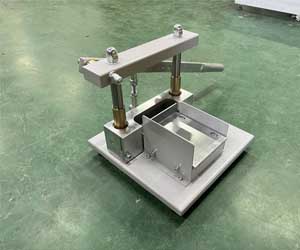Advanced Electronic Tensile Testing Equipment for Material Strength Evaluation and Analysis
An electronic tensile testing machine is a sophisticated piece of equipment used to evaluate the mechanical properties of materials. This machine plays a crucial role in various industries, including materials science, manufacturing, and construction, by providing valuable insights into how materials respond to stress.
The primary function of an electronic tensile testing machine is to apply a uniaxial tensile force to a material sample, typically a metal, plastic, or composite. The machine carefully measures the force applied and the corresponding elongation or deformation of the sample. This data is crucial in determining key properties such as tensile strength, yield strength, elongation, and modulus of elasticity.
One of the main advantages of electronic tensile testing machines is their precision. These machines are equipped with advanced sensors and data acquisition systems that ensure accurate measurements. The electronic components allow for real-time monitoring and recording of the testing process, making it easier to analyze the data. Users can visualize stress-strain curves, which graphically represent the relationship between stress (force per unit area) and strain (deformation). Such curves provide insights into the material's behavior under load, helping engineers and designers choose appropriate materials for specific applications.
electronic tensile testing machine

Moreover, modern electronic tensile testing machines come with various features that enhance their usability and versatility. For instance, they often include software that enables users to conduct complex analyses, adjust test parameters, and generate detailed reports. This level of automation not only saves time but also minimizes human error, leading to more reliable results.
In addition to their use in laboratories for research and development, electronic tensile testing machines are also widely employed for quality control in manufacturing processes. By regularly testing materials and finished products, companies can ensure that they meet safety standards and specifications, ultimately leading to higher quality and reliability.
In conclusion, the electronic tensile testing machine is an indispensable tool in the study and application of material properties. By providing accurate and reliable data on how materials behave under stress, it facilitates better decision-making in material selection and product design, thereby contributing to advancements in various engineering fields. As technology continues to evolve, we can expect even more enhancements in the capabilities and applications of these testing machines.
-
Why the Conductor Resistance Constant Temperature Measurement Machine Redefines Precision
NewsJun.20,2025
-
Reliable Testing Starts Here: Why the High Insulation Resistance Measuring Instrument Is a Must-Have
NewsJun.20,2025
-
Flexible Cable Flexing Test Equipment: The Precision Standard for Cable Durability and Performance Testing
NewsJun.20,2025
-
Digital Measurement Projector: Precision Visualization for Modern Manufacturing
NewsJun.20,2025
-
Computer Control Electronic Tensile Tester: Precision and Power for the Modern Metal Industry
NewsJun.20,2025
-
Cable Spark Tester: Your Ultimate Insulation Assurance for Wire and Cable Testing
NewsJun.20,2025
 Copyright © 2025 Hebei Fangyuan Instrument & Equipment Co.,Ltd. All Rights Reserved. Sitemap | Privacy Policy
Copyright © 2025 Hebei Fangyuan Instrument & Equipment Co.,Ltd. All Rights Reserved. Sitemap | Privacy Policy
